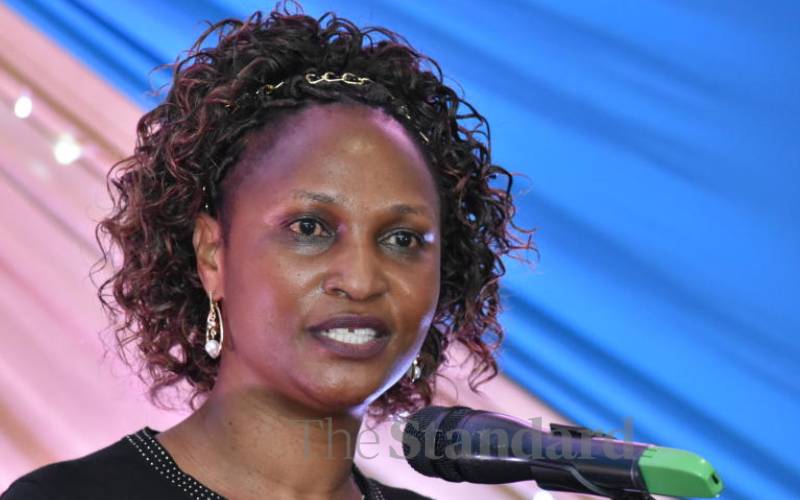×
The Standard e-Paper
Kenya’s Boldest Voice

Registrar of Political Parties, Anne Nderitu, at the KICC, Nairobi, November 2021. [Samson Wire, Standard]
Being less than a year to elections, it is the season of buying and selling political parties. According to the Registrar of Political Parties, as of November 2021 there were 81 fully registered parties and 20 with provisional certificates.